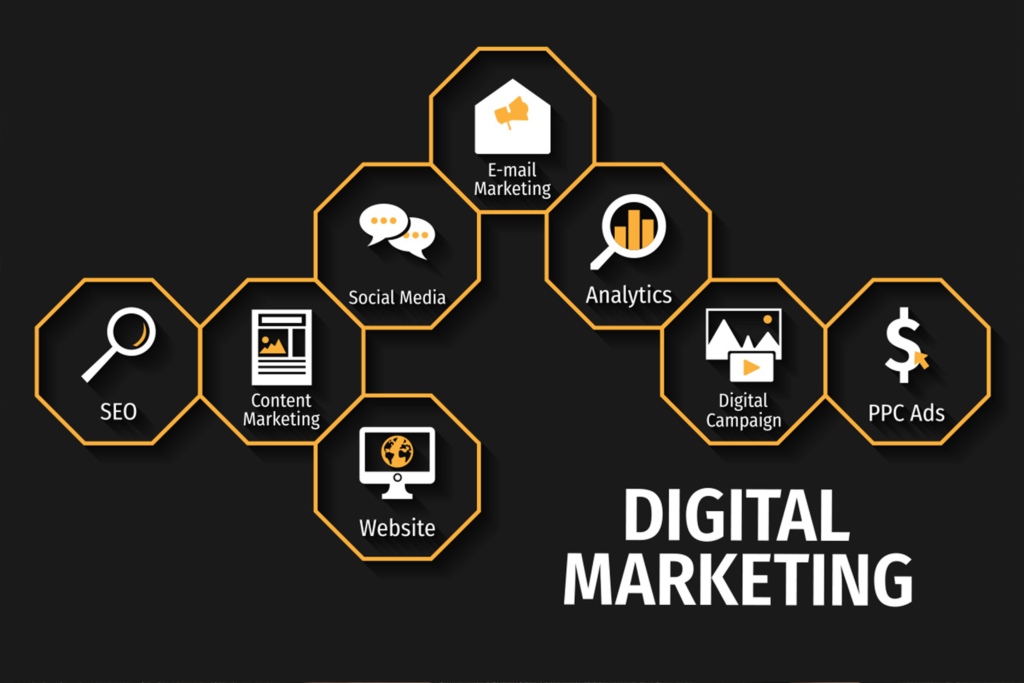In today’s digital age, influencer marketing has emerged as a powerful strategy for brands looking to connect with their target audience, increase brand awareness, and drive sales. By partnering with influential individuals on social media platforms, brands can leverage their reach, credibility, and authority to promote their products or services authentically. In this comprehensive guide, we’ll explore the fundamentals of influencer marketing and provide actionable tips to help you harness the full potential of this dynamic marketing strategy.
What is Influencer Marketing?
Influencer marketing is a form of marketing that involves partnering with influential individuals, known as influencers, to promote products or services to their audience. These influencers typically have a large and engaged following on social media platforms such as Instagram, YouTube, TikTok, and Twitter, and they have the ability to sway the opinions and purchasing decisions of their followers through their content and recommendations.
The Benefits of Influencer Marketing
- Increased Reach and Visibility: Influencer marketing allows brands to tap into the existing audience and reach of influencers, exposing their products or services to a wider and more targeted audience. By partnering with influencers who align with their target market, brands can increase their brand visibility and reach potential customers more effectively.
- Credibility and Trust: Influencers have built trust and credibility with their audience through their authentic and relatable content. When influencers recommend a product or service, their followers are more likely to trust their opinion and consider making a purchase, resulting in higher conversion rates for brands.
- Targeted Engagement: Influencers often have a highly engaged and niche-specific audience, making influencer marketing an effective way to target specific demographics and segments of your target market. By partnering with influencers who cater to your ideal audience, brands can drive targeted engagement and increase the likelihood of conversions.
- Authentic Content: Influencers create authentic and engaging content that resonates with their audience, making influencer marketing feel less like traditional advertising and more like a genuine recommendation from a trusted friend or peer. Authentic content is more likely to capture the attention of followers and drive meaningful engagement with brands.
- Creative Collaboration Opportunities: Influencer marketing offers brands the opportunity to collaborate with influencers on creative and innovative campaigns that showcase their products or services in a unique and compelling way. By leveraging the creativity and expertise of influencers, brands can create memorable and impactful campaigns that resonate with their audience.
Key Elements of a Successful Influencer Marketing Strategy
- Define Your Goals and Objectives: Start by defining clear and measurable goals for your influencer marketing campaign, such as increasing brand awareness, driving website traffic, or generating sales. Understanding your objectives will guide your strategy and help you measure the success of your campaign.
- Identify the Right Influencers: Research and identify influencers who align with your brand values, target audience, and campaign objectives. Consider factors such as audience demographics, engagement rates, content quality, and brand fit when selecting influencers to partner with.
- Build Authentic Relationships: Approach influencer partnerships as collaborations rather than transactions. Take the time to build authentic relationships with influencers, engage with their content, and demonstrate genuine interest in their work to foster trust and rapport.
- Set Clear Expectations and Guidelines: Clearly communicate your expectations, campaign objectives, and guidelines to influencers before the campaign begins. Provide influencers with creative freedom to showcase your products or services authentically while ensuring that their content aligns with your brand values and messaging.
- Track and Measure Performance: Monitor and measure the performance of your influencer marketing campaigns using relevant metrics and analytics tools. Track key performance indicators such as reach, engagement, click-through rates, and conversions to assess the effectiveness of your campaign and make data-driven decisions for optimization.
- Compensate Influencers Fairly: Compensation for influencers can vary depending on factors such as reach, engagement, and content quality. Consider offering influencers monetary compensation, free products or services, exclusive discounts or offers, or other incentives that align with their preferences and motivations.
Conclusion
Influencer marketing offers brands a powerful way to connect with their target audience, increase brand awareness, and drive sales in today’s digital age. By developing a well-planned influencer marketing strategy and partnering with the right influencers, brands can leverage the reach, credibility, and authenticity of influencers to achieve their marketing objectives and stand out in a crowded marketplace.
Ready to elevate your influencer marketing strategy and drive meaningful results for your brand? Contact us today to learn how our team of influencer marketing experts can help you develop and execute a customized influencer marketing strategy tailored to your unique business goals.

